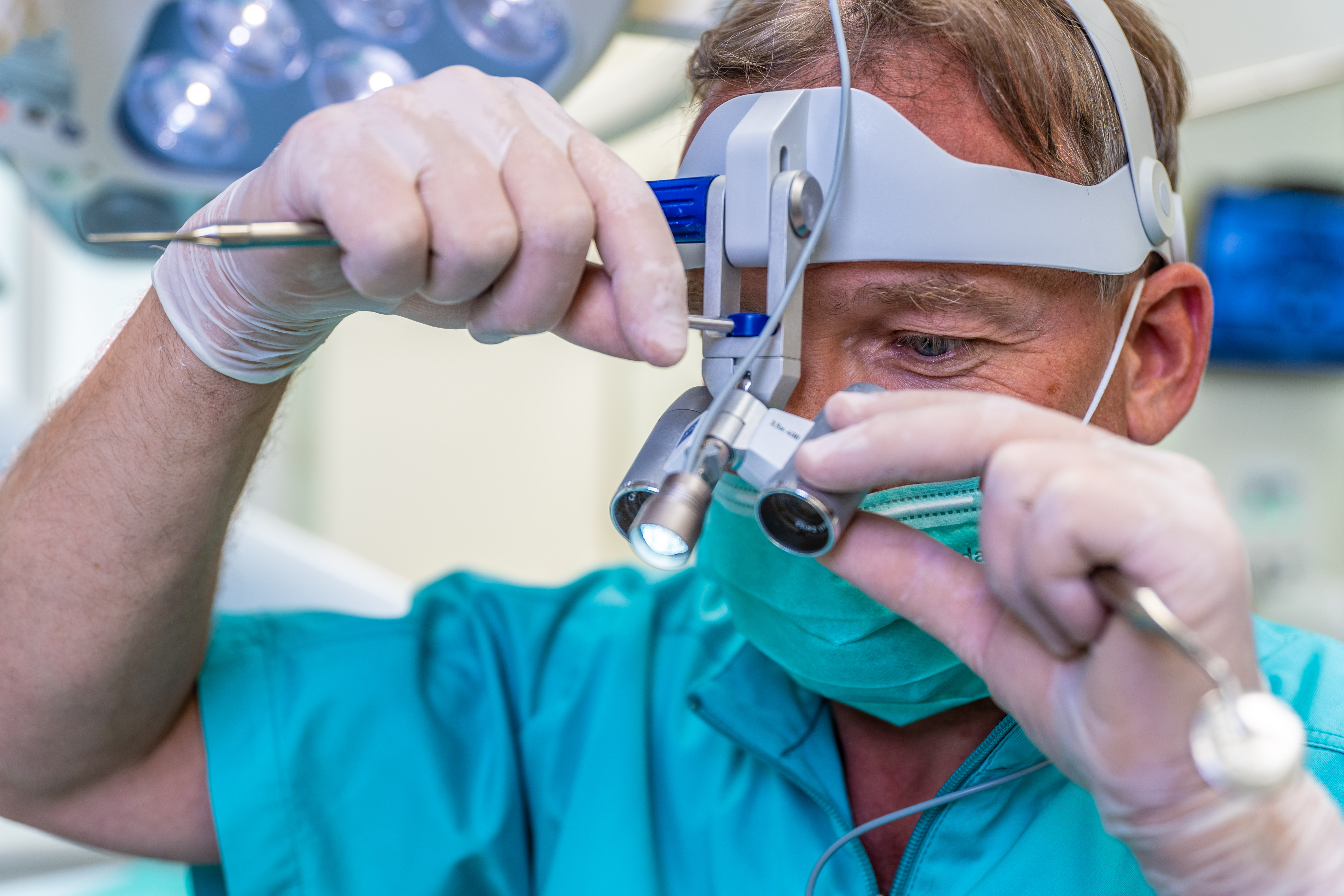Reception: ![]() +36/30 show
+36/30 show
6721 Szeged, Osztrovszky utca 12.
Open every week-day since 1996
Open on week-days from 8 AM to 9 PM
24 578 satisfied customers
Serving you since 1996
When it comes to certain interventions, success takes a highly qualified specialist with years of professional experience. Oral surgery and bone grafting are certainly among these.
Feeling uncertain? This is natural and understandable. It takes a consultation with a specialist to fully map any dental problem you may have and to find the optimum solution. Depending on the findings, it may be enough to rely on a dentist, or, alternatively, you might need a specialist, an oral surgeon. The presence of an experienced oral surgeon also gives you the added reassurance that you get the best possible treatment plan for your dental problem.
You probably have a lot of questions if you face oral surgery or bone grafting. With nearly 20 years of professional experience behind his back, the oral surgeon at our Szeged dentistry will do his best to answer all your questions and to find the optimum solution. Please feel free to call +36 30 206 9532 for an oral surgery consultation appointment and we will tell you all about the treatment you are about to undergo.
vissza a kérdésekhez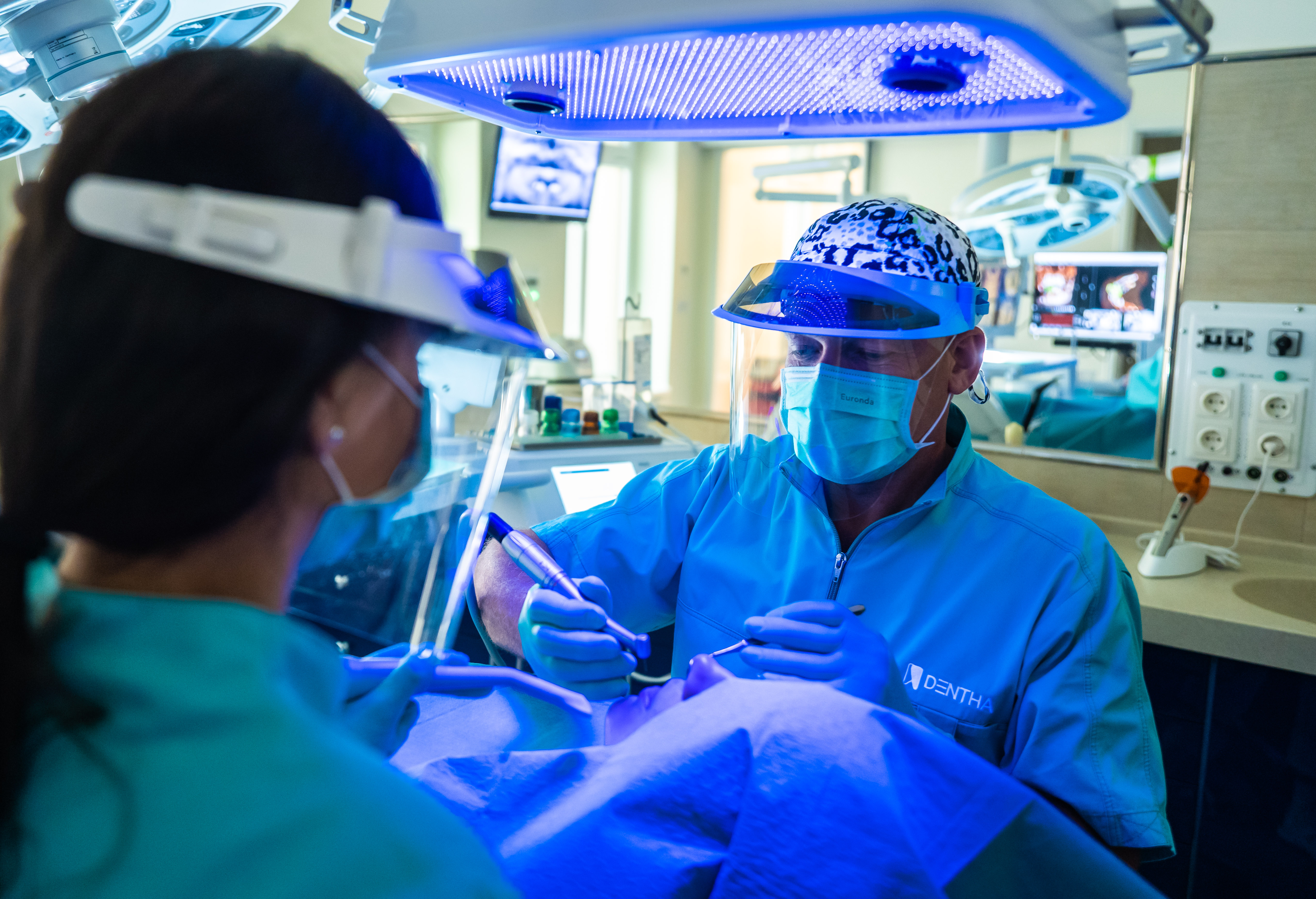
Under current Hungarian legislation, dentists do not need to specialise as oral surgeons to perform dental implantation. However, for your own safety, it is a wise idea to undergo dental implantation under the hand of a specialist who has the professional qualifications to intervene immediately should any unexpected situation arise.
While dental implantation is considered simple routine surgery, routine may not always be enough. Panoramic radiographs and CT images give an accurate picture of the condition of your bone structure. Nonetheless, once the surgery site is opened up, the professional performing the operation may occasionally find that the implantation cannot be performed as originally planned, or that a supplementary procedure is also needed prior to implantation. For example, the patient’s bone structure may not have the thickness and density to ensure the stability of the implants. In such cases, there may be a need for bone grafting, an intervention that a qualified oral surgeon can perform right away, and then proceed with implantation as planned.
Read more about the implants and the implantation process by clicking here.
With nearly 20 years of professional experience behind his back, the oral surgeon at our Szeged dentistry is happy to be at your disposal. Please call +36 30 206 9532 for an oral surgery consultation appointment to find out all about the oral surgery you are about to undergo.
vissza a kérdésekhez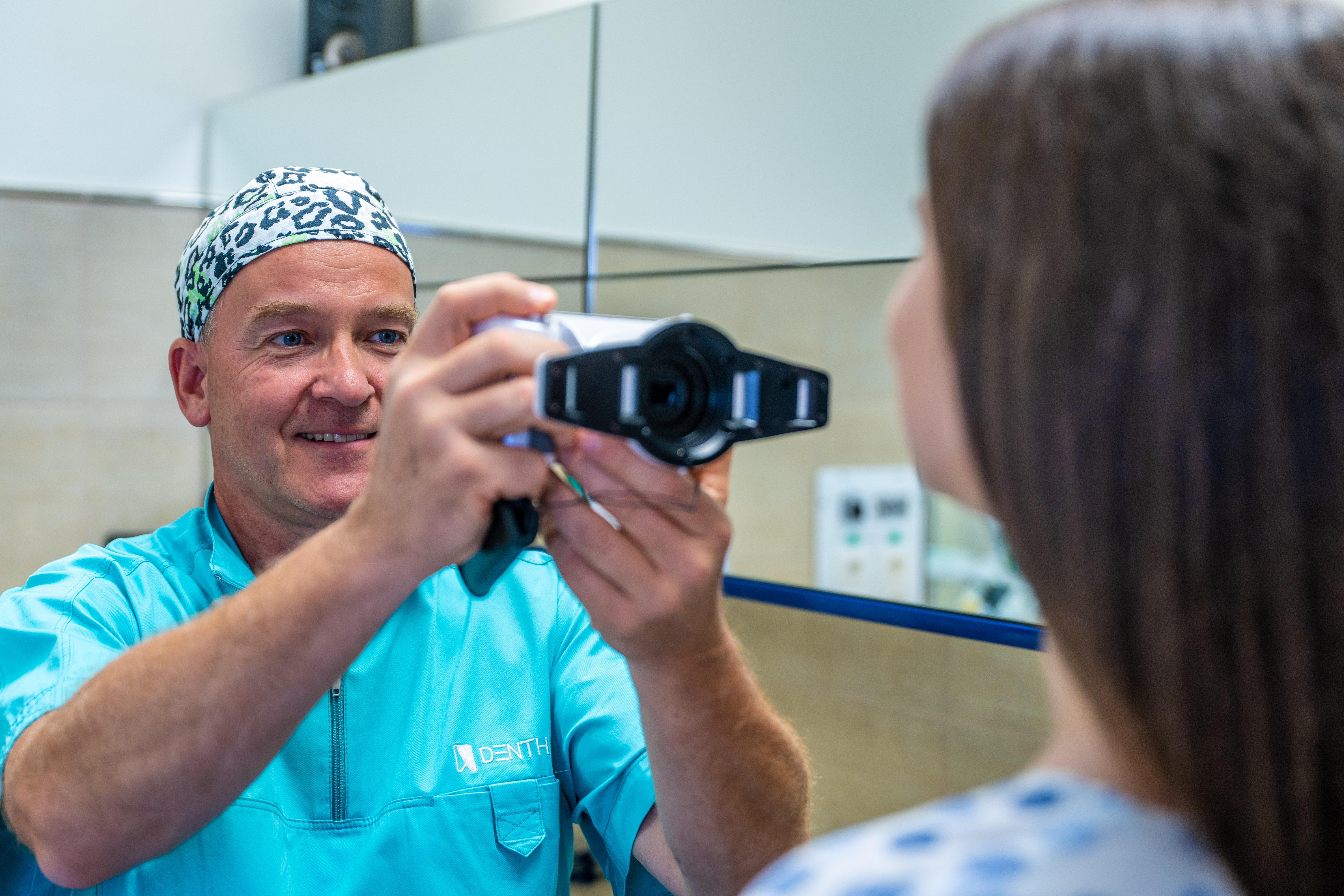
Bone grafting is usually performed when the patient does not have enough healthy natural bone to support dental implants. Although this intervention requires a great degree of professional expertise, it is neither painful nor excessively demanding on the patient. Thanks to progress in the field of dental sciences, today’s artificial bone grafting materials help reduce the risk of the intervention.
You might need bone grafting when:
Read more about bone grafting by clicking here.
vissza a kérdésekhez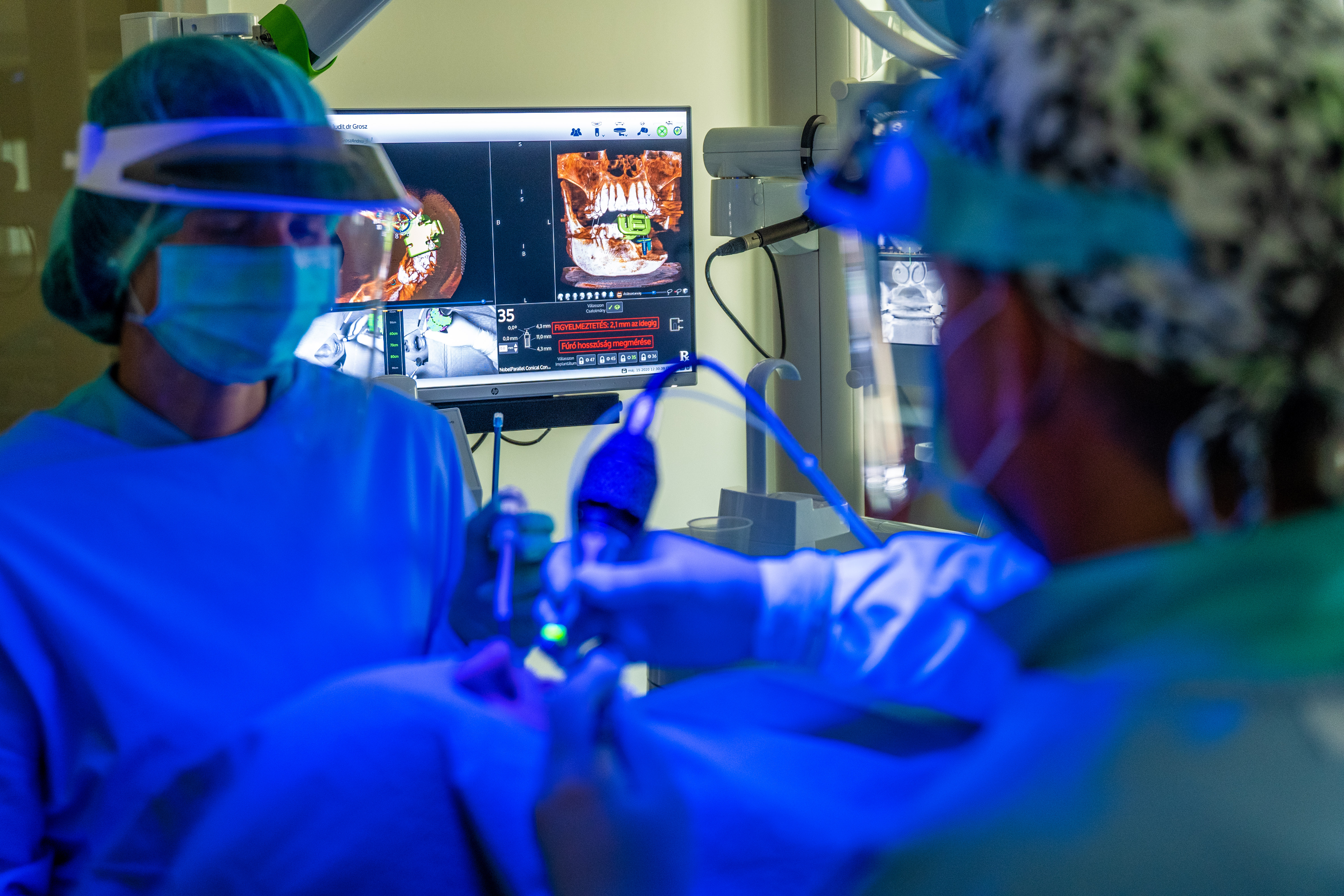
In the case of complicated extractions, the tip of the root may fracture and remain in the alveolus. As a potential infection focus, it should be surgically removed as soon as possible.
At our dentistry, we remove root fragments in three steps as follows:
Would you like to prevent your root fragment from causing an inflammation? Feel free to call our dentistry at +36 30 206 9532 for a consultation appointment!
vissza a kérdésekhez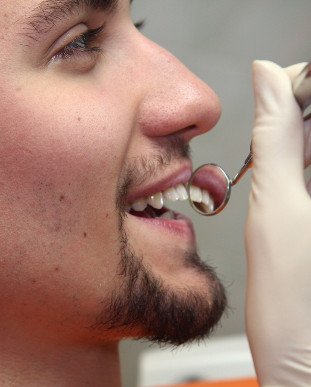
Sometimes it is impossible to clean the root canals of a tooth in their full length; for example, the file may not reach all the way to the tip of the root if the root is bent. As a result, chronic inflammation may develop near the root end of the root canalled tooth. Considered a dental focus, this inflammation may potentially lead to such chronic systemic diseases as arthritis, myocarditis, or hair loss.
If a tooth, after successful root canal treatment, continues to show symptoms, its root ends must be surgically removed. This is also called root resection.
At Dentha Dentistry Szeged, we perform root end surgery in three steps as follows:
In order to guarantee your personal safety, we perform this intervention in our isolated maximum sterility operating room.
Are you uncertain whether your teeth have been root canalled appropriately? Call our dentistry at +36 30 206 9532 for a consultation appointment!
vissza a kérdésekhez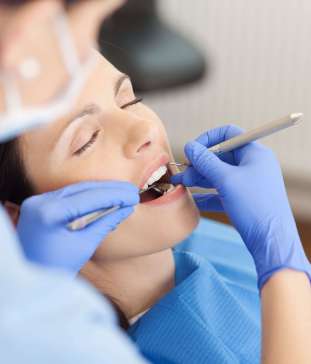
Displaced or growing but unerupted wisdom teeth that cause problems usually take minor surgery to remove. Performed under local anaesthesia, this intervention is also pain free. During the operation, oral surgeon Dr. Gábor Benedek makes an incision in your gum above the unerupted wisdom tooth and extracts it while ensuring that your adjacent teeth remain unaffected. Finally, in order to prevent any infection, he stitches up the wound with a suture, which will be removed after a healing period of seven days.
To read more about wisdom teeth, please click here.
vissza a kérdésekhez